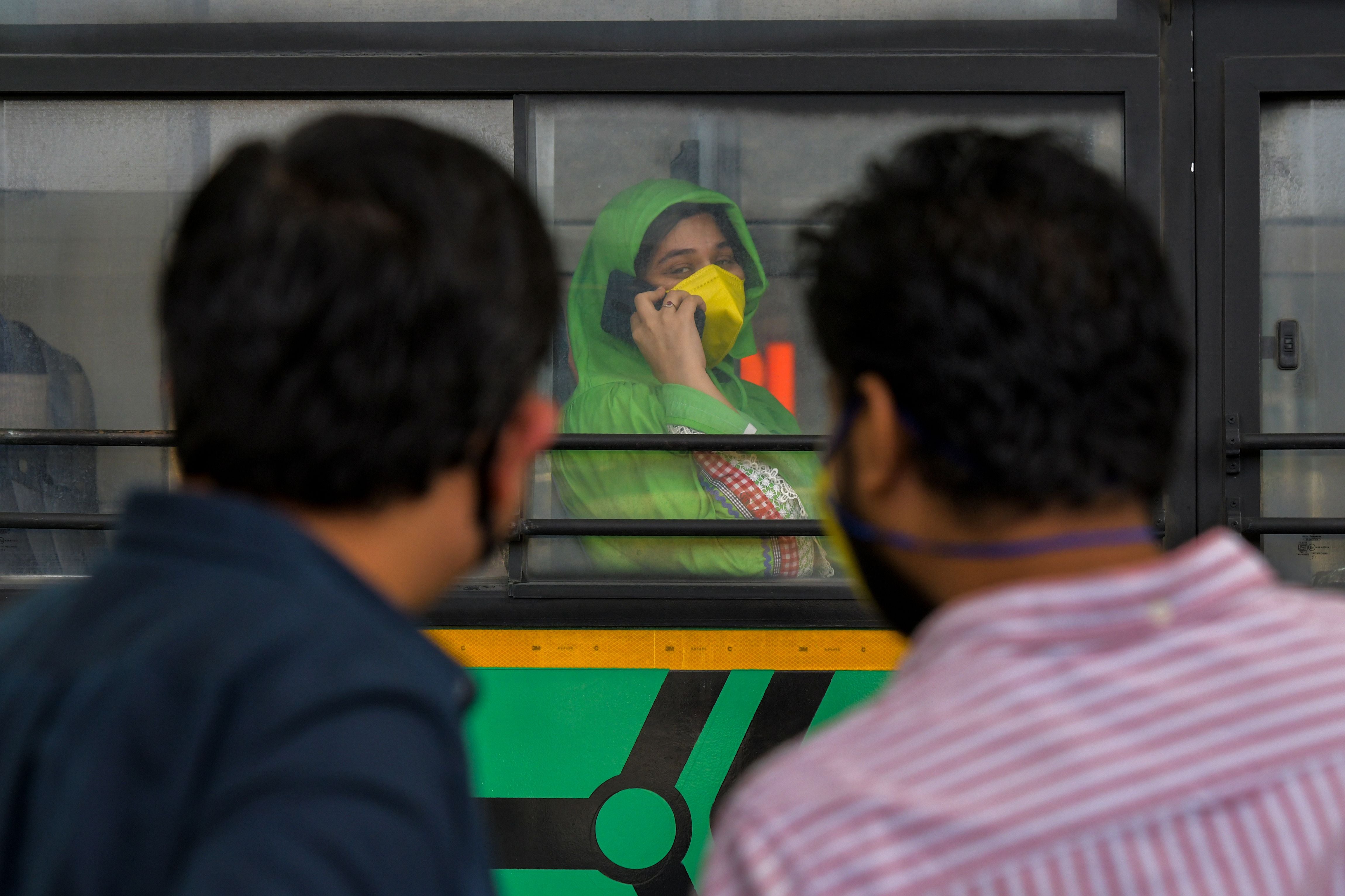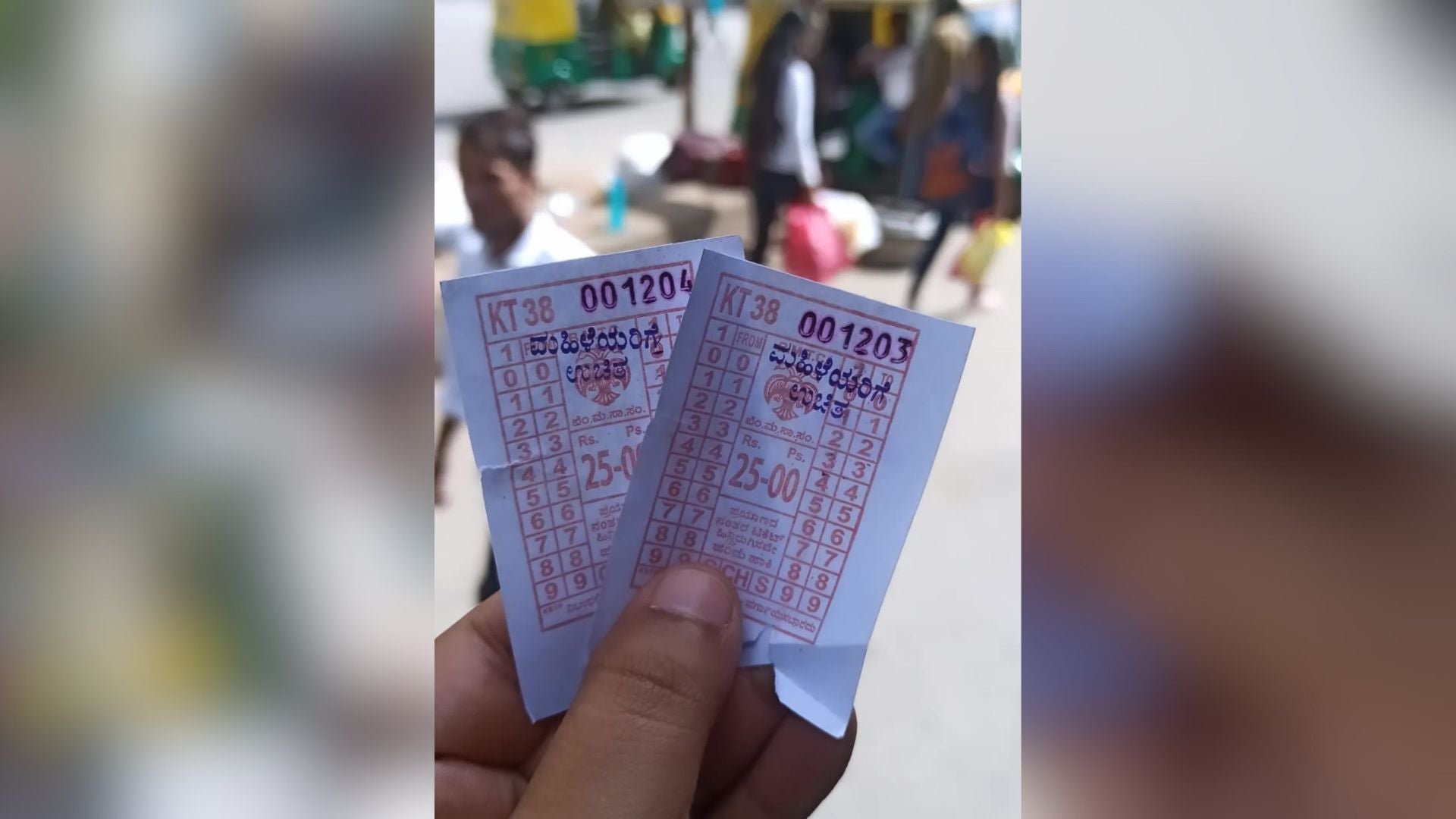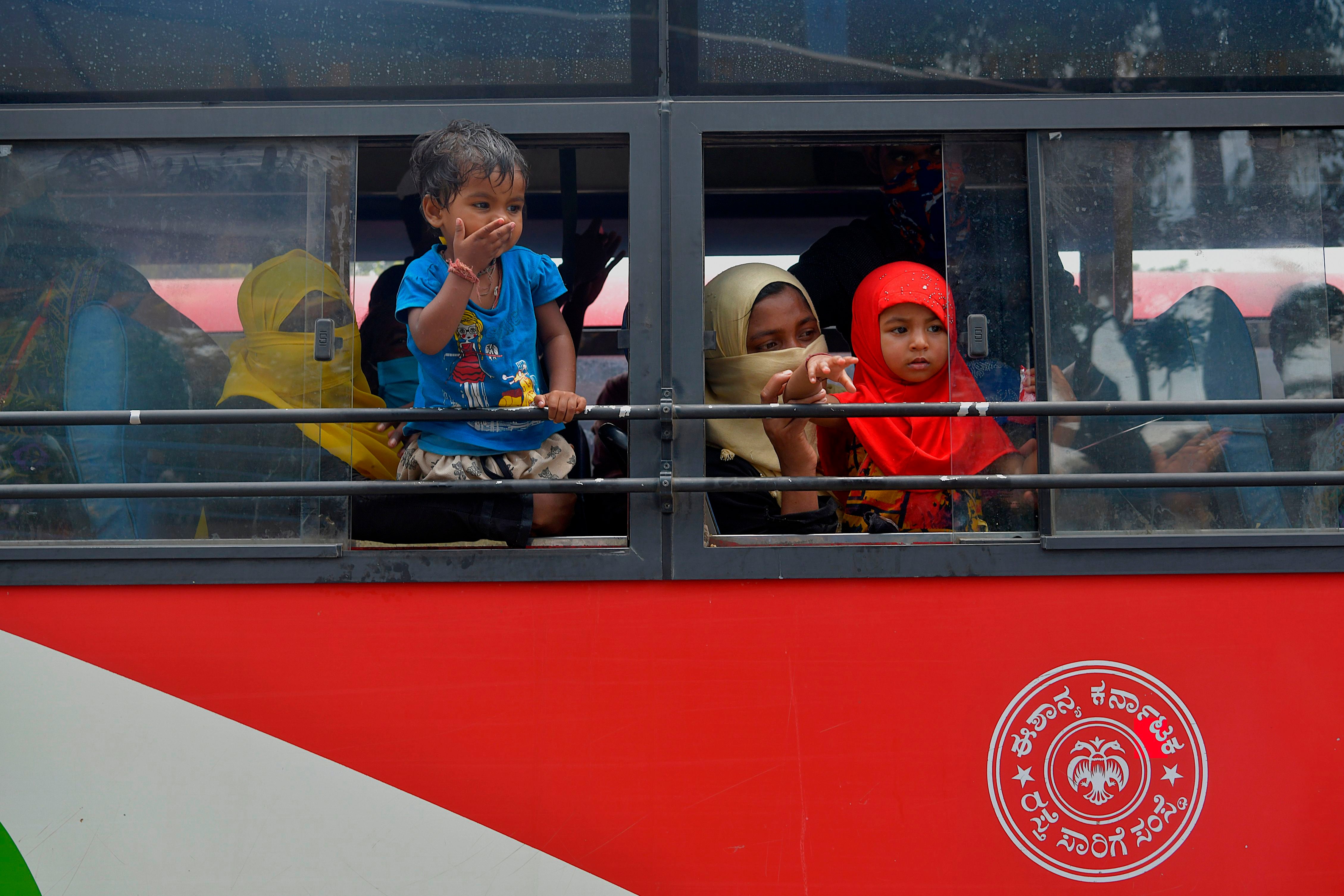Women ignore right-wing outcry to hail free buses in Indian state: ‘A matter of life and death’
Free bus travel to benefit 4.18 million women passengers daily in Karnataka state, officials claim

A new welfare scheme that offers free bus travel for girls, women and the transgender community in one of India’s states has sparked an online war by those dismissing it as an unfair “freebie”.
The scheme called “Shakti” – the word for power or empowerment as implied in this case – was rolled out in Karnataka this Sunday by the ruling Congress party.
It fulfils an election promise made by the party that recently came to power in the southern state by defeating its right-wing rival, the BJP. The scheme allows all women, girl students attending schools and colleges, and transgenders to be provided with travel free of cost in city buses across the largest southern state.
On Sunday, when Karnataka resident Upasana Sabale learned of the rollout, she thought travelling by bus after a long break would be worth a shot.
“I travelled 13 km free of cost that day because I just wanted to see how it works,” she told The Independent. “I just had to show my identity card. Normally the trip would have cost me Rs 25 [24p],” she said.

The 33-year-old works with one of India’s largest e-commerce companies and usually takes the metro shuttle to reach her work place in tech hub Bengaluru. She said she is excited about the prospect of her other women colleagues also opting for the scheme.
“I know people who come from 20-25km away and have to change three four modes of transport to come to the office. Now it will not just save their money but also their time,” Ms Sabale said, while adding that women will end up saving at least Rs 2,000 (£19.2) and that the scheme should have been rolled out by the state government much before.
But for critics on social media, who have condemned women for availing the scheme, it is nothing but a “freeloading” of government services.
The Congress, that came to power in the state last month with a comfortable margin against Narendra Modi’s BJP, said the intention to put money back in the pockets of ordinary people has now become a reality.
Lavanya Ballal Jain, the party spokesperson for Karnataka, said the criticism primarily stems from men and right-wing sections. She claimed the on-ground reality in the first five days of the scheme was far more empathetic and economical.
“Those harping about the scheme for women and transgenders are mostly men and people from the BJP, condemning them as ‘freebies’, but if they actually look who this is benefiting, they will realise that a sanitation worker who had to walk back to her home at night is now able to take a bus at the end of the day and make it without having to toil extra,” she told The Independent.
“We asked the bus conductors on their first day feedback and were told that not only has their work gone down of distributing and issuing tickets but they’re now seeing an uptick in male travellers joining their spouses and siblings for travel,” Ms Jain said.
“I watched a young woman working with Infosys [top Indian IT company] board one of the four flagship buses on the first day. She was beaming with happiness but told us that while she was not a regular bus commuter, she just wanted to experience what free travel offers,” Ms Jain said.
But economically, it makes a huge difference, she added.
“Urban dwellers end up paying Rs 500 for cabs every day and they may not realise the value it holds for some in our economically weaker section for whom the money saved can be used to purchase medicines. It is a matter of life and death for some,” she said.
Data from Karnataka’s four Road Transport Corporations showed footfall on bus travel surged from an average ridership of 8.3 million to 10.5 million on Sunday, while this number was at about 5.1 million people on Tuesday.
Only those who can prove they are residents of Karnataka, through domicile, are eligible for the scheme.
“The numbers tell the story – more women in buses means more women in public spaces and more security for women. It also means more people using public transport and less people hailing cabs which is the need in Bengaluru,” said Bengaluru-based journalist Prajwal.

The Congress also claims women – who comprise at least half of Karnataka’s 65 million population – will benefit in the long run.
Officials said the service will be of use to over 4.18 million women passengers daily and will cost the exchequer an estimated Rs 40bn (£384m) annually.
Karnataka joins three other Indian states – Delhi, Tamil Nadu and Punjab – that offer free bus rides to women.
Delhi – known to be one of the most unsafe cities in the world for women – had also received flak for a similar scheme that rolled out in 2019.
Around 127 million of 402 million working Indians are women, said the country’s 2011 census data.
Women in urban India reject better paying jobs that are long distances away from their homes due to unreliable or unaffordable public transport systems, said a 2017 study by the Institute for Transportation and Development Policy.
Join our commenting forum
Join thought-provoking conversations, follow other Independent readers and see their replies
Comments



Bookmark popover
Removed from bookmarks